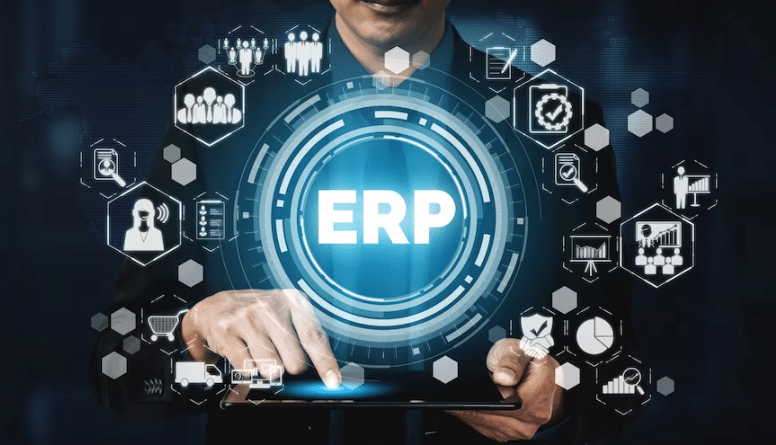Enterprise Resource Planning (ERP) software constitutes a pivotal framework in modern business operations, orchestrating a symphony of integrated functions essential for managing resources, processes, and data within an organization. In this extensive exploration, we delve into the multifaceted world of ERP software, elucidating its core functionalities, significance, implementation strategies, challenges, and future trends.
Understanding ERP Software
1. ERP Defined
ERP software is an integrated suite of applications designed to streamline and manage various core business functions, including finance, HR, supply chain, and customer relationship management, on a unified platform. It serves as a centralized hub, enabling data flow and collaboration between different departments.
2. Core Functions of ERP
Financial Management
ERP software handles accounting, budgeting, and financial reporting, offering a comprehensive view of the organization’s financial health.
Supply Chain Management
It optimizes the supply chain by managing inventory, procurement, and logistics, ensuring efficient operations.
Human Resources
From payroll management to employee data, ERP software aids HR functions, enhancing workforce management.
Customer Relationship Management (CRM)
ERP systems assist in maintaining customer data, improving customer interactions, and fostering long-term relationships.
3. Importance of ERP in Modern Businesses
Streamlining Operations
ERP brings coherence to otherwise disparate operations, reducing manual efforts, minimizing errors, and promoting efficient workflow.
Data Integration and Analytics
By consolidating data from various departments, ERP software facilitates informed decision-making through real-time analytics and reports.
Efficiency and Cost Reduction
The automation and optimization of processes lead to cost savings and improved overall efficiency within the organization.
Implementing ERP Software
1. Selecting the Right ERP System
The selection process involves understanding business needs, scalability, cost, and compatibility with existing systems.
2. Integration and Customization
Successful implementation involves integrating the ERP system with existing software and customizing it to suit specific organizational needs.
3. Training and Change Management
Employee training and change management are crucial to ensure smooth adoption and effective utilization of the ERP system.
Challenges in ERP Implementation
1. Cost Considerations
The initial investment in ERP software can be substantial, and ongoing costs for maintenance and updates need to be factored in.
2. Resistance to Change
Employees might resist adopting new software, requiring effective communication and training to overcome resistance.
3. Data Migration and Integration Issues
Transferring existing data and integrating it into the new ERP system can present technical challenges and require careful planning.
The Future of ERP Software
1. Cloud-based Solutions
The shift towards cloud-based ERP solutions offers increased accessibility, scalability, and reduced infrastructure costs.
2. AI and Machine Learning Integration
The integration of AI and machine learning within ERP systems will revolutionize data analytics, predictive insights, and process automation.
In conclusion, ERP software stands as a linchpin in modern business operations, offering a unified solution for managing diverse business functions. As technology continues to evolve, so too will the capabilities and impact of ERP systems in optimizing business processes and decision-making.
If you’d like to explore specific aspects or need further details, feel free to ask for more insights!
